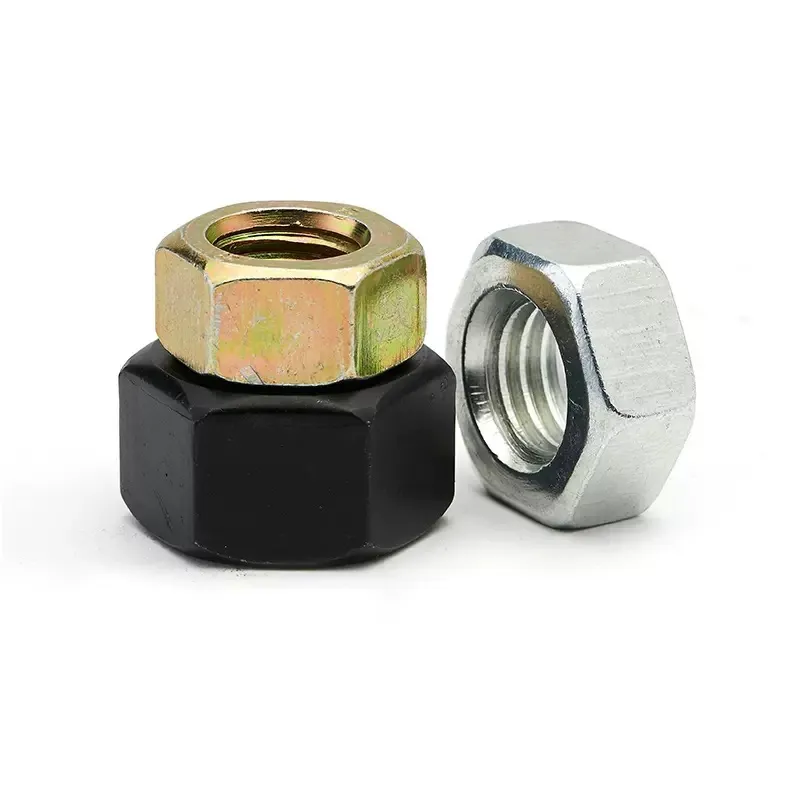

Self-tapping screws engineered specifically for applications involving plastic materials and components
Nov . 10, 2024 22:21 Back to list
Self-tapping screws engineered specifically for applications involving plastic materials and components
The Role of Self-Tapping Screws in Plastic Applications
Self-tapping screws are essential components used in various industries, particularly when it comes to joining materials without needing pre-drilled holes. This feature becomes particularly advantageous in applications involving plastic materials, where the properties and characteristics of the plastic can present unique challenges. Understanding the design and functionality of self-tapping screws intended for plastic applications is critical for ensuring durability, stability, and overall performance.
Understanding Self-Tapping Screws
Self-tapping screws are designed to create their own threads as they are driven into a material. This is particularly useful for plastics, which can be more difficult to work with than metals due to their varying densities, flexibility, and the potential for cracking. The unique design allows for easier installation without requiring additional components, such as anchors or nuts, thereby streamlining manufacturing processes and assembly.
Design Considerations for Plastics
When considering self-tapping screws for use with plastic materials, specific design features should be taken into account
1. Thread Design The threads of self-tapping screws used for plastics are typically sharper and coarser than those used for metal. This helps the screw to cut into the material more effectively, ensuring a secure fit. Variations like aggressive or double-lead threads can help distribute the load evenly, reducing stress on the plastic.
2. Material Composition Screws made for plastic applications often use materials like stainless steel, nylon, or specialized coated metals. Stainless steel offers strength, while nylon screws can prevent electrochemical corrosion, which is beneficial in specific environments.
3. Head Type The choice of head type can affect the performance of the screw. For instance, a flat head allows for flush fitting in certain plastic materials, while a pan or truss head can provide increased load-bearing surface and reduce the risk of the screw pulling through the material.
self-tapping screws designed for use with plastic materials are

Applications in Industry
Self-tapping screws designed for plastic are widely used across various sectors, including automotive, electronics, and appliances. In the automotive industry, these screws are used to assemble interior components such as panels, brackets, and sensor housings, where lightweight and durability are paramount. In electronics, they secure casings and internal components, ensuring that devices remain intact and functional without adding excessive weight.
Advantages Over Traditional Fasteners
The use of self-tapping screws in plastic applications presents several advantages over traditional fasteners
- Ease of Installation The ability to create threads while being installed allows for quick assembly and reduces the need for complex fastening systems.
- Improved Joint Strength Properly designed self-tapping screws can create strong and reliable joints with plastic materials, which is crucial for the longevity of products.
- Cost-Effectiveness Utilizing self-tapping screws can reduce manufacturing costs by minimizing the need for additional hardware and tools, thus streamlining production processes.
Conclusion
In conclusion, self-tapping screws are an indispensable tool in the realm of plastic applications. Their design intricacies and adaptability make them suitable for various settings, from automotive to consumer electronics. By understanding the specific needs of plastics and the advantages offered by self-tapping screws, manufacturers can improve assembly processes while ensuring reliability and performance in their products. The continuous evolution in screw design and materials will undoubtedly lead to further advancements in fastening technology, enhancing the ways we work with plastic materials in the future.
Latest news
-
Hot Dip Galvanized Bolts-About LongZe|High Strength, Corrosion Resistance
NewsJul.30,2025
-
High-Strength Hot Dip Galvanized Bolts - Hebei Longze | Corrosion Resistance, Customization
NewsJul.30,2025
-
Hot Dip Galvanized Bolts-Hebei Longze|Corrosion Resistance&High Strength
NewsJul.30,2025
-
High-Strength Hot-Dip Galvanized Bolts-Hebei Longze|Corrosion Resistance&High Strength
NewsJul.30,2025
-
Hot Dip Galvanized Bolts-Hebei Longze|Corrosion Resistance&High Strength
NewsJul.30,2025
-
Hot Dip Galvanized Bolts - Hebei Longze | Corrosion Resistance, High Strength
NewsJul.30,2025

